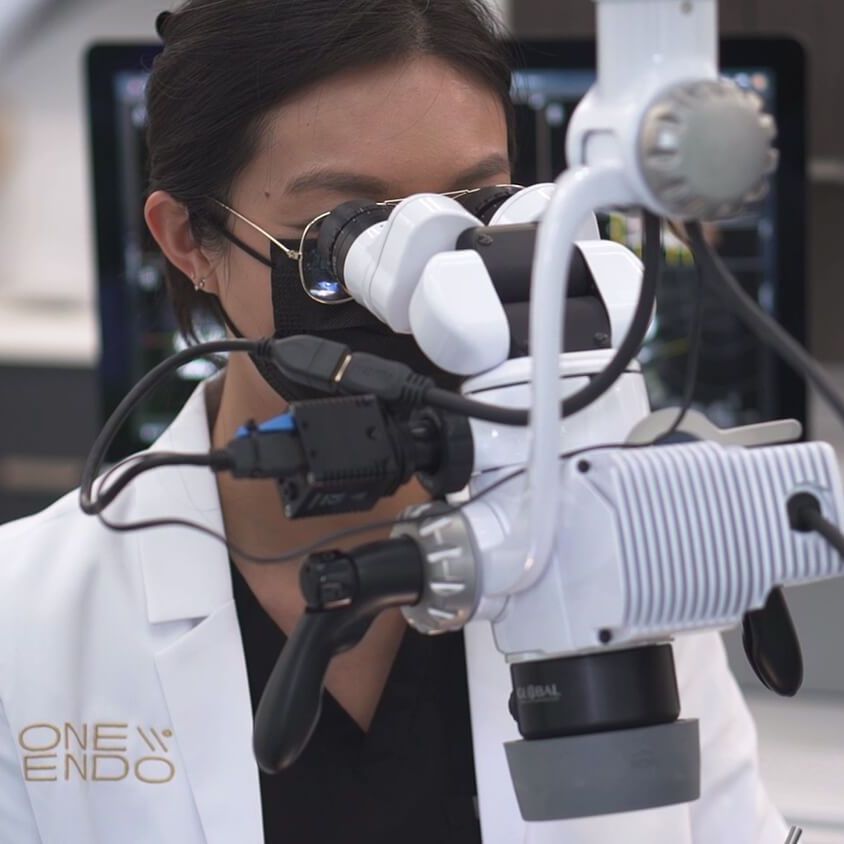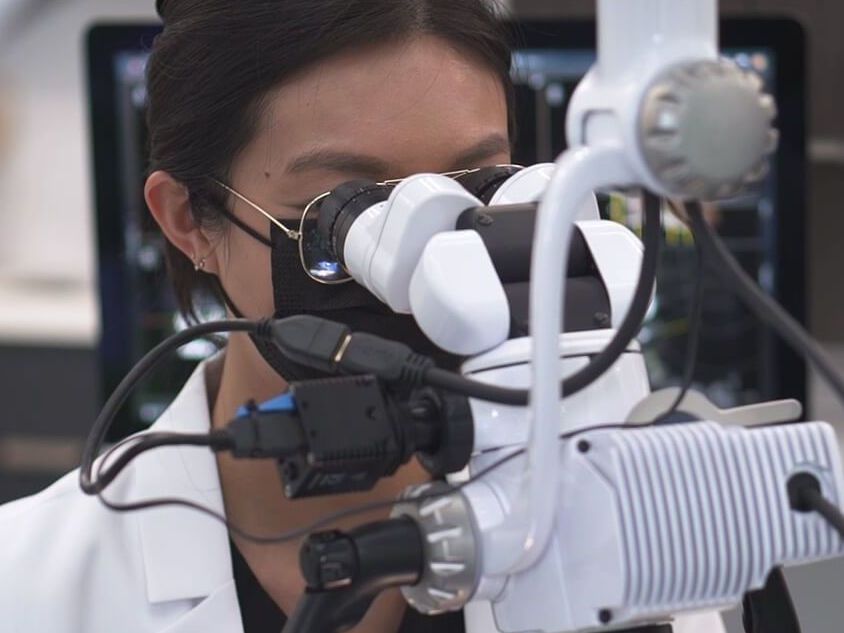Root Canal Therapy
At ONE ENDO®, our team of highly skilled and experienced endodontists takes great pride in providing exceptional dental care through our expertise in performing advanced root canal therapy.
Get a Consultation With a ONE ENDO® Specialist
Contact Us
pain-free root canal treatments
experienced root canal specialists
Root canal therapy is a dental procedure performed to save a severely infected or damaged tooth. It involves the removal of the infected pulp tissue from the tooth's interior, followed by cleaning, disinfection, and sealing of the root canals. Although this procedure widely has a bad reputation for being painful, the truth it is crucial in relieving tooth pain, eliminating infection, and preventing the need for tooth extraction. Root canal therapy is a highly successful procedure that allows patients to retain their natural teeth and alleviate the discomfort associated with dental infections. Learn more about how the ONE ENDO® team can help restore your dental health with root canal therapy.
What Is a Root Canal?
Root canal therapy, or a “root canal,” for short, is the best way to save an infected tooth. With this endodontic treatment, you can eliminate the source of the infection, get relief from your toothache, and protect the tooth for years to come.
Tooth infections usually happen due to oral trauma which breaks the tooth, or advanced decay that eats through the hard outer layers of the tooth, creating a very large cavity. Root canal therapy involves creating an opening in an infected tooth, then using special tools to clean the inside of the tooth and eliminate the infection. When properly performed, a root canal will fully restore the tooth and protect it for 10+ years, and many root canals last a lifetime.
The Root Canal Treatment Process: What to Expect
Getting root canal therapy can be intimidating, especially if you are unsure of what to expect. When you come to ONE ENDO® for your root canal treatment, we will follow these steps:
Do I Need a Root Canal?
You may need a root canal if you have a toothache that lasts several days, your tooth is sensitive to hot and cold foods and drinks, or you feel pain and discomfort when chewing. If you notice these indicators, contact us now for a consultation so that we can confirm whether or not a root canal will provide relief.
Save your smile with root canal therapy
Without root canal therapy, infected teeth will continue to die, and will eventually require removal. Get a root canal to save your smile and relieve your dental pain! If you want more information regarding root canal therapy services at ONE ENDO®, or to schedule a consultation with us,
contact us today.
Frequently Asked Root Canal Therapy Questions
For more information About Root Canal Therapy or to request a consultation, call one of our Three locations Or Contact Us ONline.
Related Services
WHY choose ONE ENDO®
Patients opt for the ONE ENDO® Experience because we are able to offer:

Licensed & Trained Endodontists

Cutting-Edge Dental Technology

Patient-Centric Service

Emergency & Same-Day Care

Financing Options Available

We Accept PPO Insurance

Three Convenient Locations

Friendly & Supportive Staff
READ OUR REVIEWS
I am a total scaredy-cat when it comes to dentists. All my concerns and worries were taken care of by Dr. Chen. She was awesome. Her bedside manner was just the best and really made me feel at ease. Her workmanship was impeccable and I am 24 hrs past my root canal- pain free. Just can’t say enough about Dr. Chen.
Paul G.
Westchester Shore
Dr. Mastroianni and his team are fantastic! I went to their office in severe pain and they addressed it immediately. The technology they used to find the route of the problem was like anything I have seen before. He was able to quickly find the issue and direct me to resolution. I would recommend 10/10!
Tiffany P.
Norwalk
I was referred to One Endo to detect and treat the source of severe tooth pain. Dr. Mastroianni quickly determined the source of the pain, took the time to explain the problem and the options for treatment, and performed an emergency root canal immediately. I highly recommend One Endo - and in particular Dr. Mastroianni.



